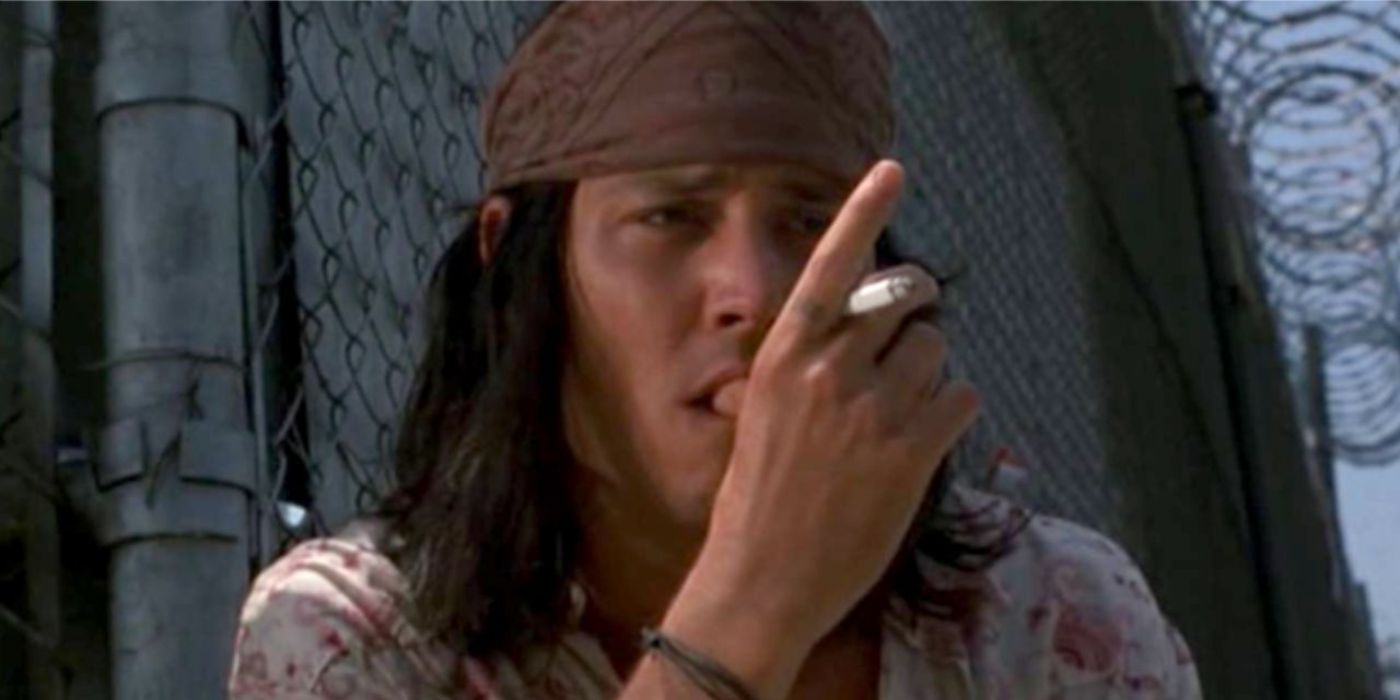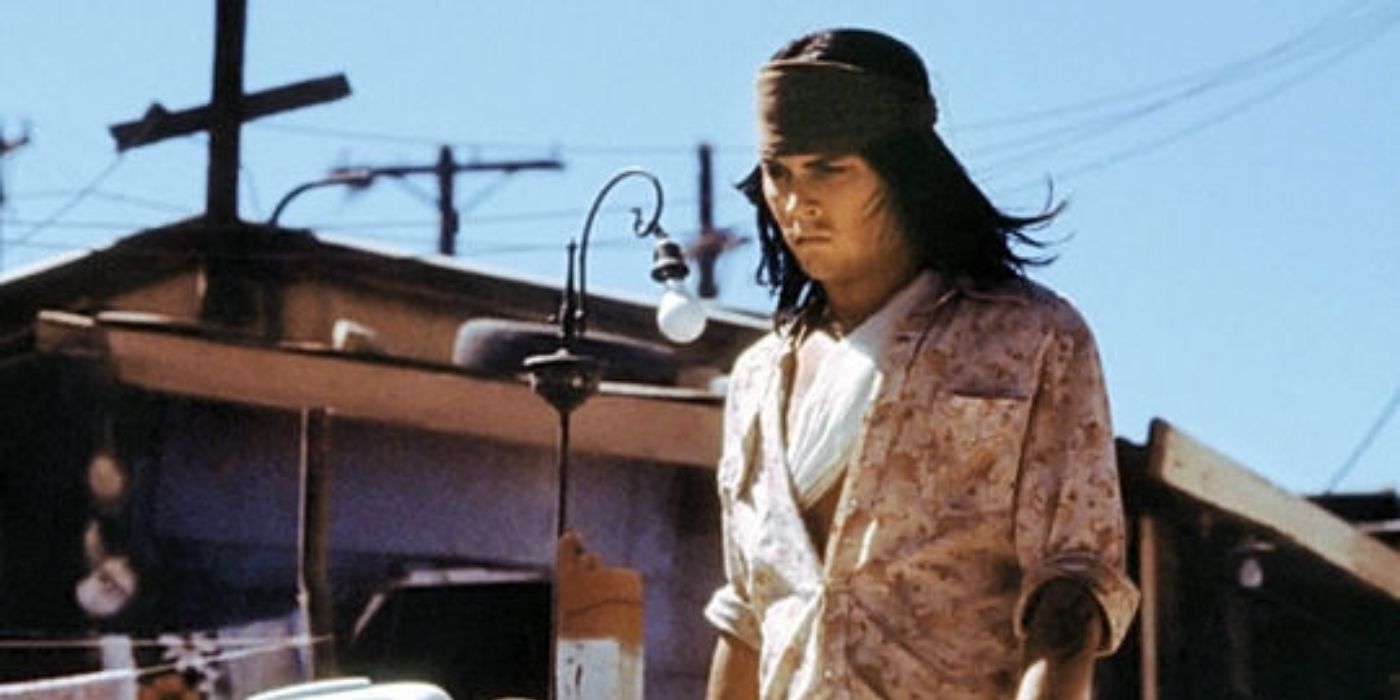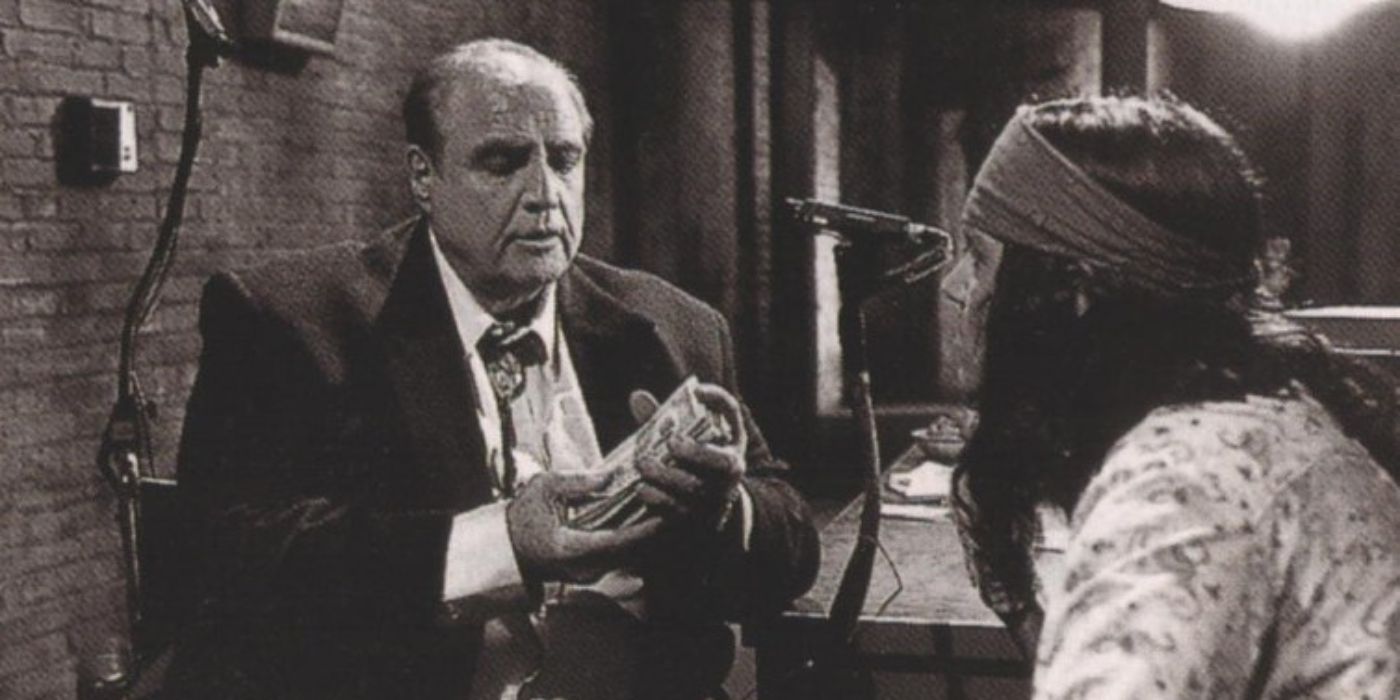The Big Picture
- Despite scathing reviews, Johnny Depp’s directorial debut film, The Brave, has a tangible spirit and a central theme of sacrifice that shines.
- The film offers insight into the intersection of ethics and religion, as the main character confronts a priest who refuses to help him in his desperate situation.
- The Brave may be flawed in terms of self-indulgence and length, but it deserves recognition for its relatable portrayal of a man willing to go to extreme lengths for his family.
The late 80s to early 90s were a great time for Johnny Depp. After fantastic performances in films such as Platoon, What’s Eating Gilbert Grape, and Ed Wood to name a few, it was only natural for him to explore other aspects of the movies where he could shine. He tried his hand in filmmaking for the first and only time in The Brave, a forgotten neo-Western that was at the receiving end of harsh criticism. Having the great Marlon Brando couldn’t save the film from reviews despising the camera’s affliction with Depp’s physical appearance and its molasses-like pace. Contrary to popular belief, Depp’s directorial debut is not devoid of anything significant, as it has a few things going for it, particularly an emotional core that a lot of people might find relatable.
What Is Johnny Depp’s ‘The Brave’ About?
Raphael (Depp) is a down-on-his luck, alcoholic Native American. He lives in a junkyard together with his family, and they struggle to make ends meet. Raphael follows the tip of a man he met at a bar to go to meet McCarthy (Brando), a shady producer who wants to make a snuff film. In exchange for his participation and subsequent torture and death, Raphael will get $50,000, an amount that would definitely help their current predicament, given that a corporation has already bought the land they are living on. Raphael agrees, and mentions that he will be back in a week to do the deed. He is given a chunk of the money in advance, to which he splurges on his family and community. His wife Rita (Elpidia Carrillo) is doubtful of the source of the money. Raphael was a former criminal after all, and she fears he may have gone back down the dark path. Raphael assures her and the community priest that it isn’t what she thinks it is.
Meanwhile, his former associate Luis (Luis Guzmán) has grown curious of his newfound wealth, and wants a taste of the action. During a fiesta where Raphael treats the entire village to a feast, Luis formally approaches his old friend, but is soundly rejected. Raphael doesn’t want to be a part of that life anymore, but Luis warns that he must reconsider. He leaves, and Raphael and Rita go out on a romantic walk to rekindle their love. Afterward, Raphael talks to the community priest to ask him for a favor. He confesses what’s going to happen, and asks him to make sure that the rest of the money goes to his family. The priest declines due to principles, and Raphael storms out of the church and back to his home. He discovers that an intoxicated Luis had tried to sexually assault Rita, but was saved by his son. Incensed, he goes to Luis’ home and kills him. Raphael returns to his father’s house, goes through a native cleansing ritual, and says his final goodbyes to his sleeping family. The film ends with Raphael entering the building where the filming of his impending doom will take place.
How Did ‘The Brave’ Come To Be?
The Brave was not initially an idea borne out of Johnny Depp’s mind. The script was written by Paul McCudden, based on a novel by Gregory McDonald. Despite the dark nature of the story, it found a particular interest among studios when it was passed around in 1993. Acapella Pictures, a production company founded by Charles Evans Jr. and Carroll Kemp, pounced on the opportunity to make this into reality. The story was so compelling, and the first-time movie producers thought that was simply unforgettable.
Together with Aziz Ghazal, a USC film school stock room manager and the man who optioned the film rights from McDonald, Evans and Kemp started to build its foundation. Ghazal would direct the picture, and the trio succeeded in gaining offers from both Jodie Foster’s Egg Prods. and Touchstone Pictures. Unfortunately, Ghazal’s involvement in the project would be halted by a real-life tragedy. When Ghazal was experiencing disagreements with Touchstone Pictures, partnered with the stress of a failing marriage, the prospective filmmaker killed his wife and daughter, before eventually taking his own life. The project was put on hold, but Evans and Kemp were still determined to bring it to life.
How ‘The Brave’ Came Into Johnny Depp’s Hands
Kemp and Evans, who had already spent about $500,000 on the project according to LA Times, reached out to another prospective first-time filmmaker, movie star Johnny Depp. Initially, Depp was not very fond of the script, but liked the idea of sacrifice for one’s family. He decided to sit on it, and in 1994, finally accepted the offer to helm the production, under a few conditions. He had to star in the film to find proper funding, and insisted on full creative control, including final cut privileges.
They came to an agreement, and the film’s distribution rights were heavily vied for in Cannes. Still, they only had $5 million as the budget, but Depp committed to cover any costs that would go over that amount. He called his friend Marlon to provide a special appearance, refined the script with his brother D.P., and commenced with filming. A film that didn’t have a big advertising budget was inherently dependent on positive reviews and word of mouth to break even, let alone make a profit. While Depp expected scathing reviews from the American audience, and said wouldn’t change the film one bit to appease the critics, its reception would lead to one of the standing reputations the film currently has. The reviews were particularly scathing, with critics universally panning the picture, it failed to find a distributor in the United States, and is still currently unreleased even on video. With complete creative control over the operation, and the numerous strings he could pull due to his status, it would be safe to assume that Depp has not made any moves to release it to the western public any time soon.
‘The Brave’ Has Its Positive Qualities, Despite Its Scathing Reviews
The intense hatred of the film by critics is reasonable, but to completely dismiss its merits is where they go wrong. There is a tangible spirit in The Brave and its central tenet of sacrifice is where it shines. As the film goes on, it is simply awe-inspiring to see a man slowly redeem himself from his past mistakes. Of particular importance is the moment where he confronts the priest who downright refuses to do the favor he asks of him. Raphael mentioning that he is now a person who sells his body, and the church regularly forgives these kinds of people offers an insight into the ethical fabric of religion.
The needs of the real world trump morals in his own mind, and what people think of him when they inevitably discover his actions is of very little magnitude. As long as he can get his family out of the hell-hole that they are in, he has no qualms. It is a moment which the audience can fully relate to, and it is where the sympathy for his character fully materializes. He is a man who is trying to do what is best for his family, and how can you not respect his decision? Yes, the critics were right in criticizing the over-bearing self-indulgence, and its needless length. However, it should have also praised The Brave‘s central premise and how it connects to the machinations of everyday life. It is worth re-watching, if only to serve as a morbid examination on how deep someone can go to provide for the people they love the most.







